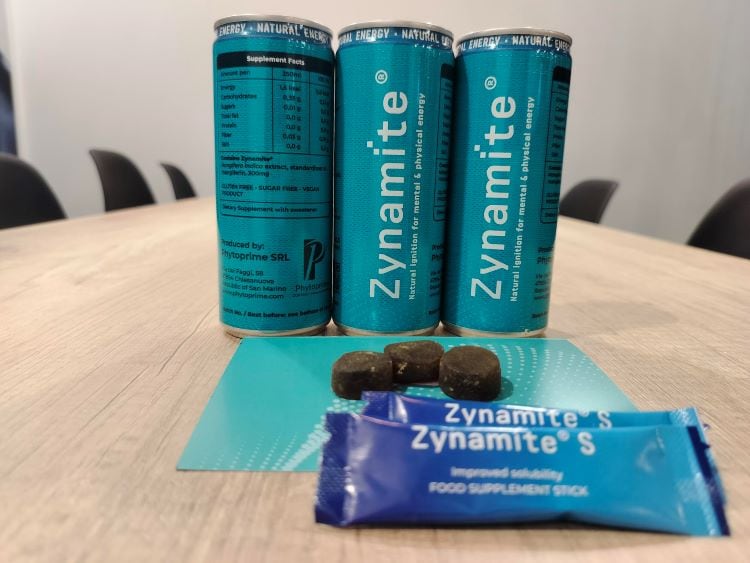Published in Research in Sports Medicine, the study is the first to evaluate the effects of hydrogen-rich water in previously untrained middle-aged adults, with improvements in hormonal and lipid profiles also noted.
The researchers from the University of Novi Sad, Serbia, said the findings support previous findings on the ergogenic effects of hydrogen in middle-aged and older adults, expanding the body of evidence to provide a more comprehensive understanding of this relatively novel supplement.
“Our study shows that drinking hydrogen-rich water for six weeks may help middle-aged men and women who are new to exercise better tolerate muscle damage caused by resistance training,” co-author Sergej Ostojic told NutraIngredients.
“While further studies are needed in broader populations, hydrogen-rich water appears to be a promising and accessible option for supporting exercise adaptation in adults over the age of 50 who are just starting a fitness program.”
What is hydrogen-rich water?
Hydrogen-rich water is regular water infused with molecular hydrogen gas (H2). This added hydrogen is believed to bring have antioxidant properties, helping to neutralize free radicals and reduce oxidative stress.
These properties are thought to be helpful during physical exercise, which increases reactive oxygen species in skeletal muscle, leading to tissue damage and fatigue.
Research on the benefits of hydrogen-rich water in sports performance to date, however, has produced inconclusive results. For example, one study on cyclists found that seven-day consumption of hydrogen-rich water improved anaerobic performance in trained athletes, while another in runners found that hydrogen-rich water had an unclear effect on race time and minimal impact on heart rate.
With significant variations seen between trained and untrained individuals, the researchers set out to discover whether hydrogen consumption could lead to improved muscle performance and reduced exercise-induced damage in exercise-naïve adults.
Study details
To conduct their study, the researchers randomized 27 adults between the ages of 50 and 65 to either hydrogen-rich water or a regular water placebo for six weeks.
Both groups participated in a supervised resistance training program, involving two to three sessions per week. Various markers were then used to assess exercise performance, and blood samples were taken to analyze muscular damage biomarkers, as well as hormone and lipid profile changes.
While muscular performance did not improve compared to the control group, the hydrogen-rich water significantly outperformed the control water in reducing biomarkers of acute muscular damage.
Beneficial hormonal responses were also noted, with small increases in free testosterone and cortisol levels after the six-week intervention.
The intervention arm also saw significant improvements in five out of seven domains of sleep quality, with no improvements observed in the control group.
These benefits may be attributed to hydrogen’s ability to protect muscles from oxidative damage, according to Ostojic.
“Hydrogen likely acts as a selective antioxidant, penetrating muscle cell membranes and neutralizing harmful molecules such as peroxynitrite and hydroxyl radicals that can damage muscle fibers,” he said. “In addition to this antioxidant role, hydrogen may also influence hormonal responses and support mitochondrial function.
“However, more research is needed to fully understand how hydrogen works at the molecular level, especially considering its small size and short lifespan within cells, which make its biological actions complex to decipher.”
Who could benefit from hydrogen-rich water?
Given its established safety profile, the researchers conclude that hydrogen-rich water could be a ‘risk-free’ beverage option for older exercise-naïve men and women.
“Recommending this combination could be crucial in addressing training-specific acute adaptations in novice individuals,” they wrote.
However, further research is essential to validate these findings across diverse populations, noted Ostojic.
“Future studies should focus on large, well-controlled trials involving different populations and types of physical activity,” he said.
“It’s important to standardize how much hydrogen is used and to measure its actual concentration at the time of intake. Long-term safety, individual responses and how HRW compares to other health strategies need to be studied. Real-world trials will help assess how practical and effective HRW is in daily life.”
“I also believe that people who naturally produce less hydrogen in their gut may benefit more from HRW, so studying differences between responders and non-responders is a crucial next step,” he added.
Source: Research in Sports Medicine. doi: 10.1080/15438627.2025.2521474. “The effects of drinking hydrogen-rich water for six weeks on exercise-related biomarkers in exercise-naïve men and women over 50 years following resistance training program: a randomized controlled pilot trial.” Authors: J. Kuzmanovic, et al.



